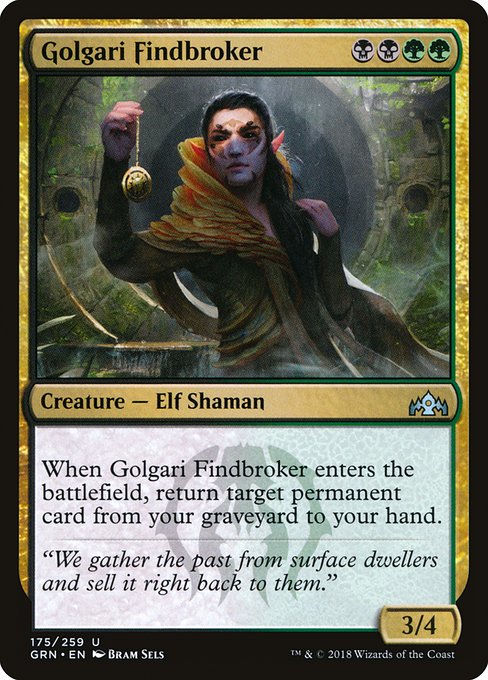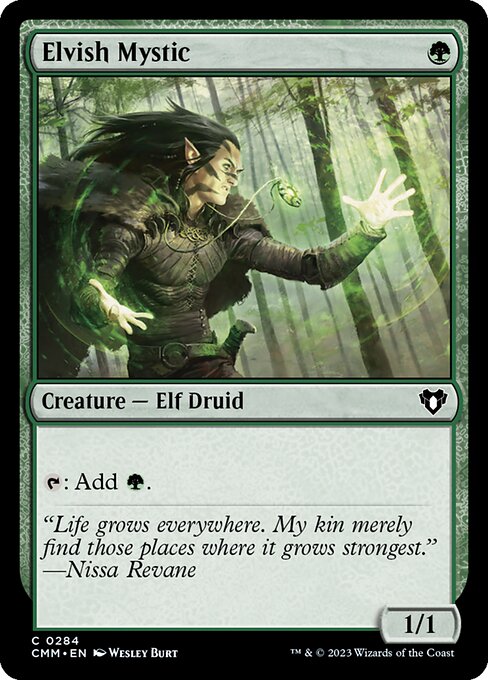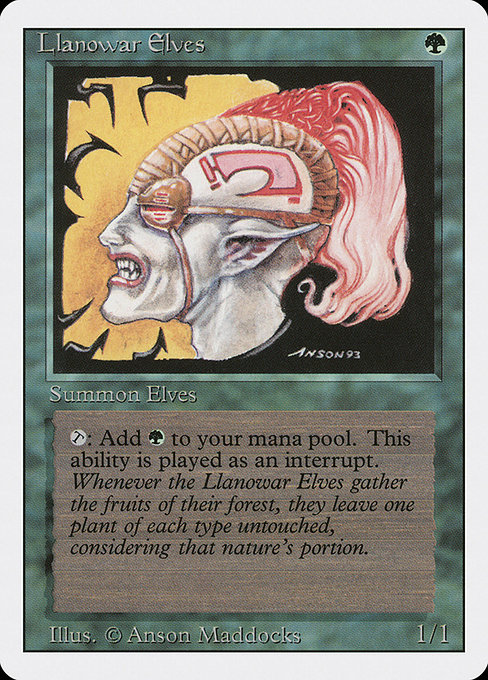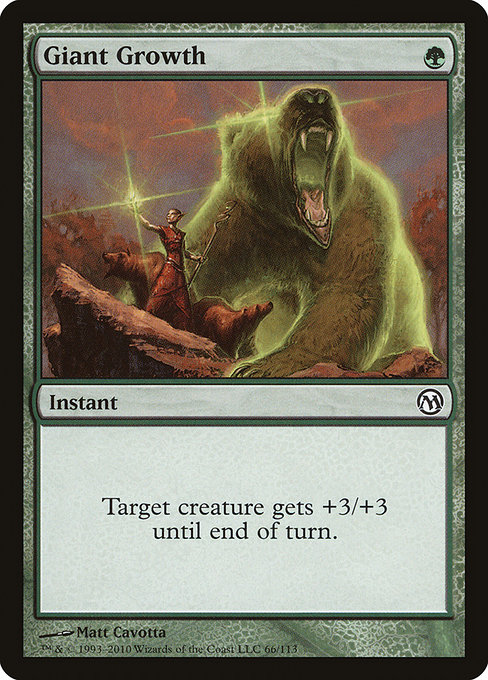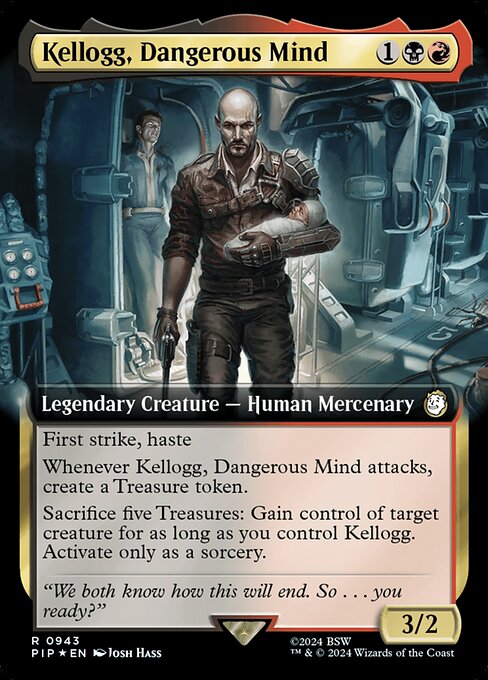
Kellogg, Dangerous Mind

Guide Sections
Strategy Guide
Last updated 2025-07-06Kellogg, Dangerous Mind is a fast, aggressive creature that generates Treasure tokens, enabling powerful board control. Its weakness is its low toughness and reliance on accumulating Treasures to steal enemy creatures; Dockside Extortionist synergy is particularly potent. It excels in aggressive strategies leveraging Treasure synergies, such as God-Eternal Bontu decks or other strategies that want to control the board through creature theft.
Kellogg, Dangerous Mind is a 3/2 legendary Human Mercenary with first strike and haste, costing {1}{B}{R}. Its immediate impact lies in its aggressive stats and keywords; the first strike allows it to strike before most creatures in combat, while haste enables it to attack the turn it enters the battlefield. Further bolstering its offensive capabilities is its triggered ability: whenever Kellogg attacks, you create a Treasure token. This generates value over multiple turns, fueling its second ability.
The second ability of Kellogg, Dangerous Mind allows you to gain control of a target creature by sacrificing five Treasure tokens. This is a sorcery-speed activated ability, meaning it can only be activated during your main phase, and not in response to other actions like attacks or spells resolving. The crucial element is the duration: you control the stolen creature only for as long as you control Kellogg. This means if Kellogg leaves the battlefield (through death, exile, or other effects), you immediately lose control of the creature. Consider using Opposition Agent to help protect Kellogg from removal if you plan to steal powerful creatures.
This creates interesting strategic considerations. Building a board state with multiple Treasure tokens before attacking with Kellogg is key to maximizing this second ability. Cards like Dockside Extortionist can generate a significant number of Treasures quickly, but be mindful that the Treasure generation is reliant on Kellogg attacking, so you’ll want to protect it and keep it alive. Conversely, if Kellogg is removed before you can use the stolen creature effectively, the stolen creature is immediately returned to its original controller. Using removal such as Murder or Lightning Bolt to eliminate opposing threats before they can disrupt Kellogg's attack strategy can significantly increase the effectiveness of this strategy. Goblin Matron or Dragonlord Atarka are good examples of the kinds of creatures Kellogg could target and exploit for the purpose of quickly winning the game.
Kellogg, Dangerous Mind is a powerful tempo card that excels in aggressive strategies focused on quickly overwhelming opponents. Its first strike and haste allow it to immediately impact the board upon being cast, while its Treasure generation fuels its powerful ability to steal enemy creatures. Decks employing strategies that want fast board development and a high density of Treasures will find Kellogg highly valuable.
Aggro decks that leverage Treasure generation, such as God-Eternal Bontu strategies, will make the most of Kellogg's abilities. The synergy between producing Treasures and using them to steal key threats is powerful. By repeatedly attacking with Kellogg, these decks generate a steady stream of Treasures, allowing them to consistently steal opposing creatures and further cement board control. This synergy allows the player to remove threats, gain valuable resources, and swing for lethal damage all in the same turn.
Beyond aggressive strategies, midrange decks with a focus on creature control and board dominance might find a place for Kellogg. While not as central to their strategy as in an aggro deck, Kellogg serves as a strong threat and potential game-ender. The ability to steal an opponent's key creature can often be a deciding factor in midrange matchups, particularly against decks relying on powerful, singular threats like Ugin, the Spirit Dragon. Cards like Dockside Extortionist further increase Treasure generation, making the ability to steal creatures much more readily available.
In terms of roles, Kellogg fills both a proactive and reactive role. Proactively, he pressures the opponent and generates resources. Reactively, he can deal with problematic threats and shift the board state in the player's favour. His versatility makes him a valuable inclusion in decks that benefit from both aggressive play and reactive control.
Kellogg, Dangerous Mind is a strong aggressive card that leverages Treasure tokens to steal opposing creatures. Deckbuilding revolves around maximizing both his aggressive potential and his ability to hijack powerful threats. Including cheap, aggressive creatures that can pressure the opponent early allows you to generate Treasure tokens quickly while applying consistent pressure. Cards like Goblin Guide, Bloodghast, and Krenko, Mob Boss are excellent choices for this purpose. Their low mana cost allows you to curve into Kellogg effectively and flood the board, generating Treasure tokens rapidly.
The second part of Kellogg's strategy lies in his ability to steal creatures. To fully exploit this, it's beneficial to include cards that generate additional Treasures, such as Dockside Extortionist or Thieving Skydiver. These cards accelerate the process of accumulating the five Treasures needed to activate Kellogg's ability, allowing for quicker control of the opponent's board state.
Consider incorporating cards that synergize with stealing creatures. For example, Act of Treason or Bribery offer additional options for taking control of creatures. While these are not directly synergistic with Kellogg's Treasure generation, they provide further flexibility in taking over critical permanents. Furthermore, including cards like Pillage, Torpor Orb, and Ghostly Prison create a more hostile environment for your opponent, maximizing the value of controlling their creatures.
Finally, the deck's vulnerability is its reliance on Kellogg surviving. Therefore, protection spells such as Lightning Greaves and Swiftfoot Boots are highly recommended to increase Kellogg's longevity. These, along with other forms of creature protection, are vital to securing the stolen creatures and continuing to pressure your opponent. A well-balanced deck will blend the aggressive early game with the ability to control the board later through Kellogg's unique ability.
Kellogg, Dangerous Mind presents an interesting case study in format viability, largely dependent on the available support and the metagame. In Standard, its immediate impact is limited by the lack of inherent synergy with Treasure tokens beyond incidental value. While the haste and first strike are valuable offensive tools, the 3/2 body is easily removed, and the treasure generation, though consistent, doesn't significantly impact the board state without further support. Cards that synergize with Treasures, such as Dockside Extortionist, are absent in Standard. This makes Kellogg a strong contender only in aggressive strategies that can leverage its immediate impact, but unlikely to become a defining card of the format.
Historic offers a slightly more welcoming environment. While again, dedicated Treasure synergy isn't prevalent, the format's greater depth offers more opportunities to build around Kellogg's abilities. The five-Treasure cost for stealing a creature is a significant investment, making it more of a mid-to-late game play, perhaps more suited to strategies centered around control or midrange. Cards that benefit from Treasure generation or provide additional tempo advantages could help mitigate Kellogg's inherent vulnerabilities. Its success here hinges on finding a shell that effectively uses both its aggressive and control aspects.
Commander presents the most promising avenue for Kellogg. The ability to steal a creature, even temporarily, is powerful in a multiplayer format, and the consistent Treasure generation provides a reliable resource for other effects and mana generation. Captain Sisay could allow for tutoring Kellogg into the battlefield at will, and decks built around Treasure synergies are already common. Furthermore, Commanders with abilities to capitalize on stolen creatures would work synergistically, such as Krenko, Mob Boss to create a massive army. The five-Treasure cost is less of a constraint in the longer games of Commander, and the inherent randomness of the format makes stealing a key creature frequently a game-winning play.
Kellogg, Dangerous Mind excels in aggressive strategies that leverage treasure generation. One impactful scenario involves an early game where you've already played Goblin Matron and Bloodsoaked Champion. Having established a board presence, playing Kellogg on turn three allows for immediate pressure with its haste ability. The Treasure token generation begins immediately, fueling the later game plan of stealing key enemy creatures.
A second scenario highlights Kellogg's ability to swing the late game. Imagine a board where your opponent controls a powerful creature like Siege Rhino, and you have five Treasures accumulated through prior turns utilizing cards like Dockside Extortionist or Raiders' Wake. Attack with Kellogg, creating an additional Treasure. Now, sacrifice the six Treasures and seize control of the Rhino, immediately turning the tide of the battle. This also makes your opponent far more reluctant to attack into your smaller creatures the following turn.
A third impactful scenario uses Kellogg's strength in a midrange deck. With a slower start, you might use Blood Pact to build up your Treasure count, making Kellogg's powerful control ability available earlier than expected. This gives the card flexibility in slower matchups, even enabling you to snag a game-winning threat after some initial resource investment.
Kellogg, Dangerous Mind, a rare legendary creature from the Phyrexia: All Will Be One set, quickly established itself as a potent and versatile card within its respective metagame. Its combination of first strike, haste, and Treasure generation offered immediate impact on the battlefield. The ability to rapidly generate Treasure tokens, providing both mana and a resource for its ultimate effect, synergized powerfully with many existing strategies focused around Treasure production such as those revolving around Dockside Extortionist. The inherent aggression of Kellogg, boosted by its low mana cost, made it an attractive inclusion in various aggressive strategies. Many players found value in its ability to generate incremental board advantage through Treasure generation, while also offering a powerful late-game swing by temporarily stealing key enemy creatures using the treasure sacrifice ability.
Reprint frequency for Kellogg has been relatively low since its initial printing in Phyrexia: All Will Be One. This rarity likely reflects its relatively high power level for its cost. A reprint in a more widely accessible set could significantly shift the balance of various formats, given its strength in aggressive strategies. Any reprint would likely require careful consideration by Wizards of the Coast to avoid unintended consequences on the competitive landscape. While the card hasn't seen play in the highest levels of competitive Magic: The Gathering, it has maintained a consistent presence in more casual and lower-tier competitive formats.
The impact of Kellogg on the game has been largely felt in the formats where aggressive strategies are viable. While it might not be a format-defining card like Wurmcoil Engine or Liliana of the Veil, Kellogg's unique ability to generate both immediate tempo and potential for swing plays allows it to influence the board state in a significant way. Its synergy with cards focused on Treasure generation underscores the overall design philosophy around Treasure tokens in the sets surrounding its release. Furthermore, its low mana cost allows for efficient plays even in the early game, making it a potent and flexible tool in the hands of a skilled player. Its impact has predominantly been felt within aggressive, midrange black-red strategies, shaping the landscape of its respective metagames by offering a relatively low-cost card with a high potential for disruptive and game-altering plays.
Kellogg, Dangerous Mind is a flavorful and mechanically interesting take on a mercenary commander. The art perfectly captures the character's ruthless ambition; a grizzled mercenary, likely mid-battle, radiating a palpable sense of danger. This fits well within the assumed pirate/mercenary theme of the "pip" set (assuming a pirate theme based on the card's design), recalling the cutthroat nature of such a lifestyle. The haste and first strike abilities reflect the immediate and decisive nature of a mercenary's actions, emphasizing the "Dangerous Mind" aspect of the card. The Treasure creation ability speaks to the mercenary's opportunistic nature, grabbing whatever spoils are available from the battlefield.
The ability to steal a creature by sacrificing Treasures adds a unique layer of strategic depth. This creates an interesting dynamic, forcing players to balance aggressive attacks to generate Treasures with the risk of losing Kellogg to removal. It synergizes well with cards that produce additional Treasures, such as Dockside Extortionist or Arcane Signet (assuming Arcane Signet is available in the set), potentially making it a powerful engine for taking control of key enemy creatures. The sorcery speed restriction on the creature stealing ability provides counterplay and prevents immediate abuse, creating a balanced interaction.
The 3/2 statline feels appropriate, reflecting the cost of the card. While not overwhelmingly powerful on its own, it serves its role in setting up the Treasure generation and ultimate creature-stealing strategy. Similar to cards such as Krenko, Mob Boss, Kellogg rewards aggressive play, though with a more controlling outcome than simply overwhelming the opponent. The overall design is cohesive, showcasing a well-defined identity for the card within its purported setting.
Kellogg, Dangerous Mind's mana cost of {1}{BR} puts it in a relatively affordable range for a rare legendary creature. Its immediate impact through haste and first strike is valuable, especially in aggressive strategies. However, the reliance on Treasure tokens for its powerful creature stealing ability makes its effectiveness dependent on other cards that generate Treasures or strategies that ensure several attack steps.
Cheaper alternatives exist depending on the desired effect. For aggressive strategies, Goblin Rabblemaster offers a similar explosive start for a significantly lower cost. If the goal is creature control, cards like Vicious Shadows offer a less flashy but potentially more reliable means of acquiring control of enemy creatures, albeit at a greater cost. For consistent Treasure generation Dockside Extortionist is a powerful option, although significantly more expensive. Thieving Skydiver may also be considered; this gives a Treasure for lower cost but requires an additional mana cost to steal a creature. Ultimately, the best alternative depends on the specific deck and strategy.
Kellogg, Dangerous Mind's power lies not just in its immediate impact on the battlefield, but in its synergistic potential with other cards and strategies. Its haste and first strike provide immediate pressure, allowing for early attacks and Treasure generation. This Treasure production fuels its unique ability to steal enemy creatures.
Strategically, Kellogg excels in aggressive strategies. Pairing him with cards like Goblin Matron or Legion Lieutenant to improve his attack power is highly effective. He synergizes well with cards that benefit from Treasure tokens, such as Dockside Extortionist for overwhelming card advantage, or Arcane Signet for faster mana development. The ability to steal a key creature, like a planeswalker or a significant blocker, can be game-winning. Consider using Thief of Sanity to ensure you can take a creature with relevant abilities.
A less obvious strategy involves using Kellogg to control the tempo of the game. While generating Treasures, he can act as a consistent threat, forcing your opponent to dedicate removal or blockers. This allows you to dictate the pace of the game, creating openings for other plays. You may sacrifice some Treasures early to accelerate mana production with Coffers of Paradise to gain extra resources if you are sure you can still accumulate five before securing a valuable target creature.
The five-Treasure cost for stealing a creature needs careful planning. Losing Kellogg means losing control of the stolen creature, so protecting him with Lightning Greaves or Swiftfoot Boots can be crucial. The sorcery speed of the creature stealing ability should be considered when incorporating it into your plan. You may need a way to force blocks on your opponent to eliminate inconvenient threats that could otherwise block Kellogg from dealing the damage needed to create a useful amount of Treasures.
Common Mistakes with Kellogg, Dangerous Mind often stem from misjudging the tempo and resource investment required to effectively utilize its abilities. Players sometimes overextend early to get Kellogg into combat quickly, leaving them vulnerable to removal spells before they've generated enough Treasure tokens. This is particularly risky since Kellogg’s 3/2 body is relatively fragile. The haste ability is tempting, but it shouldn't come at the cost of a losing board state.
Another frequent mistake is failing to fully consider the opportunity cost of sacrificing five Treasures. While gaining control of a significant threat is powerful, it delays the potential for future Treasure generation and the inherent value of those Treasures. Losing access to potential mana from the Treasures is a hefty price, especially if the stolen creature is easily dealt with or the opponent quickly reclaims it. Players might overlook the fact that the effect only lasts while they control Kellogg; losing Kellogg means losing control of the stolen creature.
Finally, some players undervalue the potential synergy between Kellogg, Dangerous Mind and other cards that produce Treasure tokens. Captain Sisay, for example, can be used to find synergistic commanders, but assembling a deck solely built around Treasure generation may be suboptimal. Players might overestimate the probability of quickly accumulating five Treasures. Failing to account for the potential removal of Kellogg before the five Treasures are accumulated weakens the strategy. Careful consideration needs to be given to a balance between Treasure generation and protecting Kellogg.
Kellogg, Dangerous Mind is a valuable aggressive card that offers significant tempo and potential board control. Its low mana cost, combined with first strike and haste, allows it to quickly impact the board, generating Treasure tokens with each attack. These Treasures fuel its powerful ability to steal a creature, providing a potent way to disrupt opponents' strategies. The 3/2 body is vulnerable to removal, but the tempo advantage and potential board swing gained from the Treasure generation and creature stealing offset this weakness. Kellogg shines in aggressive strategies that can readily generate Treasure tokens, such as those employing cards like Dockside Extortionist or Arcane Signet. He's best played when you have, or are about to have, access to five Treasures to fully leverage his ability, either by attacking multiple times or by using other Treasure-generating effects. Waiting too long risks him being removed before he becomes a major threat. His value is maximized when used to steal a key creature from your opponent, such as a planeswalker or a significant threat.
